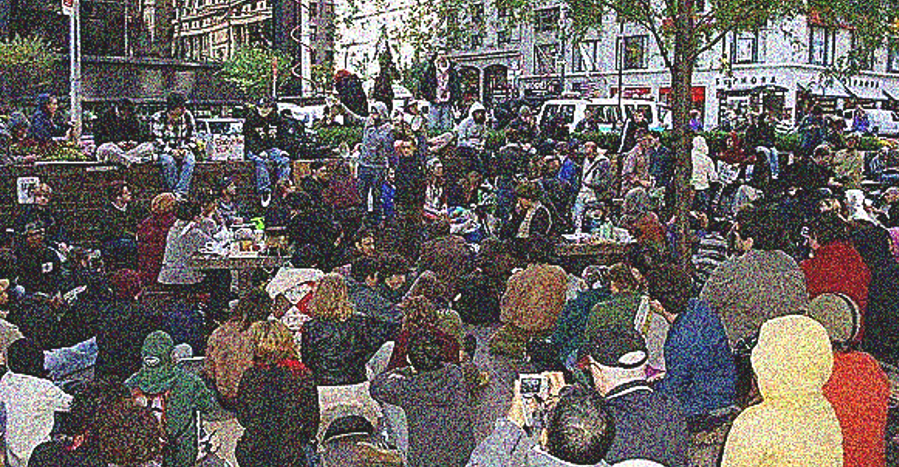
Why Civil Disobedience Belongs in the Psychology
Note: I know we have many psychologists in our audience and that many psychologists work in public health. The study I blog about today was recommended on a Reddit thread.
A psychologist refuses to comply with a law that discriminates against non-documented immigrants seeking mental health care. Instead of turning them away, they continue to provide services, risking legal consequences. Is this unprofessional conduct, or is it a courageous act of civil disobedience?
A recent study argues that civil disobedience is not just an ethical choice for psychologists—it’s part of their professional duty. By refusing to uphold unjust laws and policies, psychologists align their practice with the very principles their profession is built upon: justice, beneficence, and respect for human rights. But what does this mean in practice, and where do we draw the line between advocacy and professional obligations?
Psychology as a Force for Social Justice
Psychology has always been more than just a science of the mind; it’s a tool for social transformation. The study highlights how psychologists can use civil disobedience to support marginalized communities and advance public welfare. Drawing from social constructionism and intersectionality, the researchers emphasize that psychologists’ personal and professional identities are deeply intertwined with the societies they serve.
Civil disobedience has historical precedence in psychology. Consider Dr. Kenneth and Mamie Clark’s research on the psychological effects of segregation, which played a pivotal role in Brown v. Board of Education. Or the mental health professionals who resisted participation in unethical government programs, such as the involvement of psychologists in coercive interrogations. These acts of defiance shaped not just policy, but the ethical landscape of psychology itself.
When Ethics and Law Collide
One of the key questions this research raises is: What happens when ethical duties contradict legal obligations? The American Psychological Association’s (APA) Ethics Code mandates that psychologists work to promote human rights and justice. But laws don’t always reflect these values.
For instance, psychologists working with undocumented immigrants may find themselves in a difficult position when laws restrict their ability to provide services. Should they comply, or should they resist? The study suggests that when laws perpetuate harm, psychologists must prioritize ethical principles over legal mandates.
What Does Civil Disobedience Look Like in Psychology?
The researchers outline several ways psychologists can engage in civil disobedience:
- Refusing to comply with discriminatory laws – Providing care to clients even when policies attempt to limit access.
- Advocating within institutions – Pushing back against unjust policies in workplaces, universities, and professional organizations.
- Participating in direct action – Joining protests, signing petitions, or using their platform to speak out against injustice.
- Conducting research that challenges oppressive structures – Centering marginalized voices and exposing systemic inequities in psychological science.
The study argues that these acts are not just political—they are essential to upholding the core mission of psychology.
The Risks and Rewards of Resistance
Of course, civil disobedience comes with risks. Psychologists who challenge unjust laws may face professional consequences, legal action, or backlash from their peers. But the researchers emphasize that without taking these risks, meaningful change is unlikely to occur.
However, the rewards are profound. When psychologists engage in civil disobedience, they help shift societal norms, improve mental health access for vulnerable populations, and reinforce the integrity of their profession. More importantly, they send a clear message: Psychology is not neutral when it comes to justice.
What’s Next?
The study calls for greater discussion within the field about when and how psychologists should engage in civil disobedience. Should professional organizations provide guidance or even legal protection for psychologists who resist unethical laws? How can training programs prepare future psychologists for advocacy?
The researchers also argue that the APA Ethics Code should explicitly address civil disobedience, making it clear that ethical obligations sometimes override legal ones. By formalizing this stance, psychology can cement its role as a profession committed to justice, even when it means breaking the rules.
Join the Conversation
What do you think? Should psychologists engage in civil disobedience? Have you ever had to make a difficult ethical decision in your profession? Share your thoughts in the comments or on social media.
- Have you ever encountered a law or policy that conflicted with your ethical beliefs? How did you respond?
- What role should professional organizations play in supporting psychologists who engage in civil disobedience?
- Do you think civil disobedience strengthens or undermines the credibility of psychology as a science?
Don’t Miss Out – Subscribe Now!
Public health needs your voice today. Join thousands of leaders already making a difference. Subscribe for free to This Week in Public Health and receive weekly updates packed with tools to drive change.
🚨 Urgency matters—take action now and share this blog to expand our reach!



